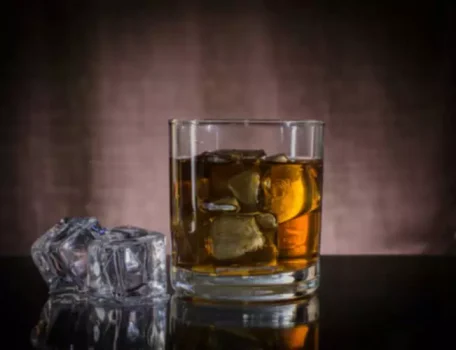
Some people report experiencing a two day – or even a three day – hangover, but there’s little evidence to support that this could be the case due to alcohol consumption alone. As stated in the “Causes” section, certain alcohols have different hangover-causing properties based on their congener content. If you are particularly predisposed to hangovers, it may be worthwhile to experiment with alcohols that have low congener content, such as beer, vodka, and white wine.
- Everyone is different, but any time a person becomes intoxicated from alcohol, a hangover is possible and symptoms can vary from person to person.
- We want you to be more comfortable, and on the road to recovery, and our intravenous treatments can help you feel healthier in no time.
- The presence of food in the stomach reduces the rate of alcohol absorption into the blood.
- For example, using other drugs alongside alcohol, such as marijuana, cocaine, nicotine, or other intoxicants, can contribute to bad hangover symptoms.
Tranq Drug: Understanding Its Impact and Risks

Research shows that hangovers generally last for about 14 to 23 hours, with some extending up to about the 72-hour mark. But on average, a hangover should end about 12 hours after stopping drinking. From science-backed hangover recovery hacks to maximizing the health benefits of your favorite drinks, they dive into everything you need to know. Grace Walsh is woman&home’s Health Channel Editor, working across the areas of fitness, nutrition, sleep, mental health, relationships, and sex.
When should I see a healthcare provider?
Hangovers resolve by themselves, usually by 24 hours after onset, however, drinking water and getting sleep can lessen some (but not all) of the symptoms of a hangover. Alcohol is the main culprit in a hangover, but other components of alcoholic beverages might contribute to hangover symptoms or make a hangover worse. But they’re often not based in science, and some can be dangerous. For example, drinking more alcohol (“hair of the dog”) won’t help a hangover.
- Typically, hangovers only last the morning (like, until you finally get around to eating breakfast)—at most 24 hours.
- More alcohol just increases the toxicity of the alcohol already in your body.
- As if feeling awful weren’t bad enough, frequent hangovers also are linked with poor performance and conflict at home, school and work.
- Hangovers result from the body’s reaction to alcohol, including dehydration, electrolyte imbalance, and the toxic effects of alcohol metabolism.
- If symptoms persist beyond 24 hours or are severe, consult a healthcare professional.
- If you suspect that someone has alcohol poisoning — even if you don’t see the classic symptoms — get medical help right away.
What Are Hangover Symptoms?
For example, someone who participated in a binge drinking session will have a longer lasting hangover how long does a hangover last than a person who had a few drinks over a number of hours. Many factors affect how likely you are to develop a hangover after drinking. For example, using other drugs alongside alcohol, such as marijuana, cocaine, nicotine, or other intoxicants, can contribute to bad hangover symptoms.
It’s important to check with your insurance company to understand the details of your coverage, including any copayments, deductibles, and the network of approved treatment providers. If you have questions or need assistance, contacting your insurance provider directly can provide clarity on what is covered under your plan. A hangover can cause a range of unpleasant symptoms such as headache, fatigue, and nausea. A hangover is a set of symptoms that are a mild form of alcohol withdrawal that occur after drinking too much. Hangovers take time to resolve, and there’s no instant cure, so arm yourself with patience.

Stick to one type of alcohol
Booze can also affect your blood sugar, says Chaun Cox, MD, family medicine physician at Mayo Clinic Health Systems. So even if what you were drinking wasn’t particularly high in alcohol, you could be experiencing a ‘sugar hangover’, alongside regular hangover symptoms, if the alcoholism symptoms drinks were particularly sugary. As your alcohol and insulin levels drop back down to normal, you may experience low blood sugar levels—also known as hypoglycemia. How you experience what it is to have a ‘hangover’ depends on how much you drink and a combination of other factors, such as hydration, blood sugar levels, age, and genetics. It is commonly believed that the symptoms of a hangover are produced primarily by dehydration, however, this has not been proven.
One of the easiest and most effective ways to treat a hangover is to hydrate with water or an electrolyte drink. For best results, you will want to hydrate before you start drinking, while you’re drinking and afterwards. Moments after feeling that pounding headache, dry mouth and nausea, you are likely pondering just how long you will have to endure this unfortunate situation. We go over how long you can expect a hangover to last and some things you can do to get back to feeling like your normal self.
- Still, 24 hours can feel like an eternity when you’re dealing with a mishmash of physical and mental symptoms.
- Alcohol can irritate the lining of your stomach, which can make any hangover-induced nausea, abdominal pain, or vomiting worse, says Boris.
- If you’re prone to migraine attacks, you’re also more likely to have problems with hangovers, particularly hangover headaches, because alcohol is a common migraine attack trigger.
- This “hair of the dog” approach is a myth—drinking alcohol the next day can make your hangover worse in the long run.
- You could also opt for drinks with a lower ethanol content, like low alcohol wine.
- There are no instant hangover cures, but doctors recommend waiting at least 48 hours before drinking again to give your body time to recover.
How to Prevent a Hangover While Drinking
However, everyone has a different alcohol tolerance level and susceptibility to the other factors that make up a hangover, so it’s not really possible to say for certain. We’ve all woken up with a heavy head asking this question after one too many the night before. No two bodies are the same, and everyone tolerates alcohol differently depending on a variety of factors, such as age, size and life experience. During a hangover, a person’s attention, decision-making, and muscle coordination can all be impaired. Also, the ability to perform important tasks, such as driving, operating machinery, or caring for others can be negatively affected.

Certain medications and home remedies might help you feel better. Although antiemetic medication like Pepto-Bismol might help reduce nausea and vomiting, it might not stop it entirely. Hangxiety can be particularly strong for those prone to anxiety. While it typically subsides as the hangover does, persistent or severe hangxiety might indicate an underlying anxiety disorder or problematic relationship with alcohol. Take the first step towards a healthier, more fulfilling life today. Contact Ardu Recovery Center to speak with our admissions team.



Deixe um comentário